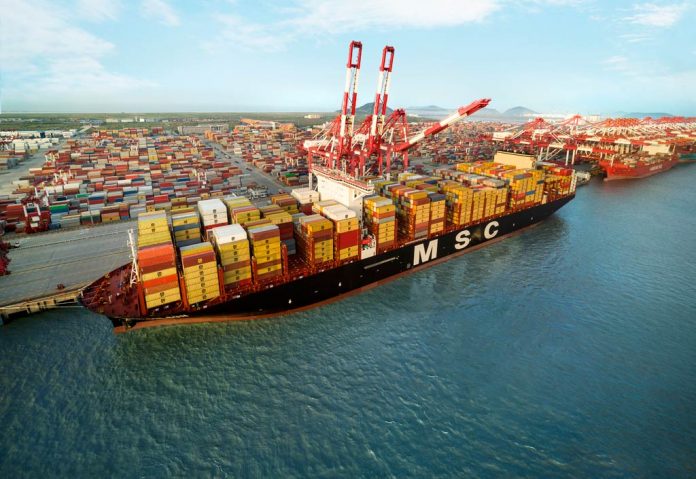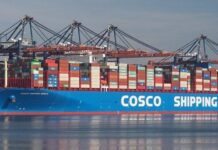
MSC Mediterranean Shipping Company has unveiled a new “Suspension of Transit” (SOT) program. The company says this is a flexible cargo service that will help to fulfill the imminent resumption of demand from Asia and ensure service continuity. It includes container yard storage in six transshipment hubs across Asia, the Middle East, Europe and the Americas, ensuring that goods can be shipped close to their destinations as soon as possible and providing easier cargo flow for customers.
MSC notes that China has begun to show signs of recovery with factories restarting production and the new SOT program will help avoid high storage costs at ports of discharge.
The program is a major part of ongoing efforts to ensure business continuity and the maintenance of vital container carriage services, such as the movement of food, fresh produce, medical equipment and other essential goods. The new SOT initiative is focused in particular on a resumption of demand of a wide variety of goods from Asia.
Signs of recovery
While positive signs of recovery have begun to emerge in Asia and factories have restarted production, major ports of destination may still not be ready to discharge containers. MSC’s new SOT program aims to fulfill the resuming demand for raw materials and finished products from Asia by providing yard storage at major strategic points around the world: Bremerhaven in Germany, Busan in South Korea, King Abdullah Port in Saudi Arabia, Lome in Togo, Rodman PSA Panama International Terminal in Panama, and Tekirdag Asyaport in Turkey.
The program is aimed at all shippers for containers from Asia and all types of cargo, except reefer (refrigerated cargo), dangerous goods and project cargo (such as large, out-of-gauge pieces of heavy equipment that do not normally fit into containers).
Cost savings
The MSC SOT program provides potential cost savings for customers faced with high warehousing storage costs at destination, demurrage, per-diem and other charges. It will also free up space at origin factories and warehouses and avoid excess inventory at site, bringing cargo closer to destination markets and alleviating the risk of congestion or closure at ports of discharge.
The lead time will be reduced once operations resume at destination ports, and the program will also add storage for beneficial cargo owners (BCOs) and non-vessel owning common carriers (NVOCCs), who would otherwise reach their full capacity.
อัพเดตข่าวสารและบทความที่น่าสนใจในอุตสาหกรรมโลจิสติกส์ก่อนใคร ผ่าน Line Official Account @Logistics Mananger เพียงเพิ่มเราเป็นเพื่อน @Logistics Manager หรือคลิกที่นี่











